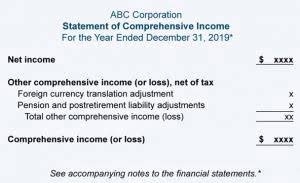Forensic Accounting Definition, Types, Careers

Today, individuals and businesses alike generate more financial data than ever before. Statements from various bank accounts, online transactions, and other financial data are a very real part of our everyday lives; unfortunately, so are financial crimes like fraud. All of this, in addition to ongoing corruption in the business world, has led to forensic accounting becoming an integral part of modern finance. It involves examining a company’s financial records, often focusing on identifying misstatements or fraudulent entries.
Key Elements of Forensic Accounting

This case, among others, underscores the need for skilled forensic accountants in protecting businesses from financial misconduct. In instances of financial crime, forensic accountants are essential in tracing the origins of unlawful activities. This investigative role helps law enforcement agencies and corporate boards take appropriate action ledger account against perpetrators and recover lost funds.
- Forensic audits commonly uncover asset misappropriation (like stealing company funds or inventory), financial statement fraud (misrepresenting financial data), and corruption (such as bribery or conflicts of interest).
- Sometimes, the lawyer or court must have someone who has special skills in accounting and investigation skills to examine and produce the report on the areas related to accounting.
- By leveraging cloud-based accounting tools and AI-driven automation, businesses can optimize financial strategy, scalability, and overall efficiency, making real-time bookkeeping an essential tool for growth and long-term success.
- They use their expertise to investigate fraud, embezzlement, and other white collar crimes.
- Trust us to help you navigate challenges and capitalize on opportunities for substantial financial growth.
- For more advanced positions, a graduate degree (such as a master’s in accounting) may be preferred.
- Forensic accountants are frequently called upon to uncover instances of money laundering among businesses and individuals alike.
Court Proceedings

To do this, they must determine the financial losses caused by the crime, which is crucial for legal cases seeking damages or compensation. Thus, it predicts, proves, and prevents financial felonies from being committed in the first place. Data-mining programs automatically scan through vast volumes of data for new, unexpected, or implicit information or patterns. Forensic Accountants use various computerized software for data extraction and financial analysis.
📆 Date: June 28-29, 2025🕛 Time: 8:30-11:30 AM EST📍 Venue: OnlineInstructor: Dheeraj Vaidya, CFA, FRM
You might have heard the phrase “forensic evidence” before, which simply means evidence that is able to be presented in a court of law. Hence, forensic accounting is a term to describe an analysis of financial information that can be used to support a case in a court of law. Forensic accounting is the investigation of fraud or financial manipulation by performing extremely detailed research and analysis of financial information. Forensic accountants are often hired to prepare for litigation related to insurance claims, insolvency, divorces, embezzlement, fraud, skimming, and any type of financial theft. Until people stop being dishonest, the world needs forensic accounting professionals.
- If you’re interested in a career in finance with some potential for dramatic, high-profile cases, forensic accounting might be right for you.
- The field of forensic accounting has been developing and changing rapidly for the past decade, especially amid emerging laws and regulations regarding fraud, finance, and data privacy.
- Discover if this is the right career path for you with a free virtual work experience.
- Discover how AI is revolutionizing logistics through smarter demand forecasting, optimized routing, automated warehouses, enhanced customer service, and improved risk detection.
- Techniques such as Benford’s Law, which examines the frequency distribution of digits in numerical data, help identify irregularities.
- Our attention to detail, adherence to guidelines, and commitment to objectivity ensure that our reports are of the highest quality and can be relied upon in legal proceedings.

Reports must be precise, with conclusions supported by evidence and thorough analysis. This includes detailing methodologies, data reviewed, and conclusions while adhering to legal standards. Forensic accounting is the examination of financial records that will lead to or result from litigation. The results of a forensic accounting investigation can be used as evidence in court, and so are usually heavily documented. According to the Bureau of Labor Statistics, the overall job market for accountants and auditors should grow 6 percent between 2023 and 2033 3. After earning a bachelor’s or master’s degree, apply for entry-level accounting positions to get hands-on experience to help prepare you for the certified public accountant (CPA) licensure.

- Fraud – investigating frauds and establishing procedures to prevent or detect fraud.
- For many forensic accountants, breaking into the field isn’t necessarily as simple as following a step-by-step process.
- These investigations are critical in maintaining investor confidence and ensuring financial markets operate fairly.
- It often involves data analysis, financial modeling, and extensive research to construct a comprehensive financial narrative.
- The process begins with collecting and preserving evidence to ensure the integrity of financial documents.
As a result, insurance firms may hire forensic accountants to help them prove cases of insurance fraud. Modern bookkeeping services go beyond basic record-keeping, offering CFO-level insights that help businesses improve cash https://www.bookstime.com/articles/what-is-a-cost-benefit-analysis flow, optimize expenses, and make data-driven financial decisions. Strategic bookkeepers provide real-time financial intelligence, track key performance indicators (KPIs), and ensure businesses remain audit-ready and investor-friendly.
- These reports provide an independent and professional analysis of financial matters tailored to meet the specific requirements of the court.
- The process starts with identifying potential financial misconduct or fraud within an organization.
- If you’re a true-crime podcast junkie or horror mystery lover, chances are you’ve heard of forensic science — using science to investigate and solve crimes.
- When hidden assets or income are suspected, they conduct thorough investigations to uncover undisclosed financial information, providing transparency for informed legal decisions.
- Attention to detail is crucial in forensic accounting, as even minor discrepancies can have significant implications.
- Forensic accountants can assist government agencies in investigating embezzlement of public funds, grant fraud, or tax evasion.
Forensic investigation fieldwork may carry legal risks and consultant malpractice risks if internal auditing checklists are used, rather than the specialized skills of forensic accounting. Accounting is more than just maintaining financial transactions and generating reports. It is also an accountant’s responsibility to ensure that there is no fraud or malpractice in the accounting process. Whether internal or external, the auditing process is forensic accounting definition to verify if the company is following the accounting standards and to identify any accounting malpractices.
Adresa
Hotel Korsal
Šetalište Frana Kršinića 80
20260 Korčula, Hrvatska-

-

Kontakt
Telefon: +385 20 715 722
E-mail: info@hotel-korsal.com

